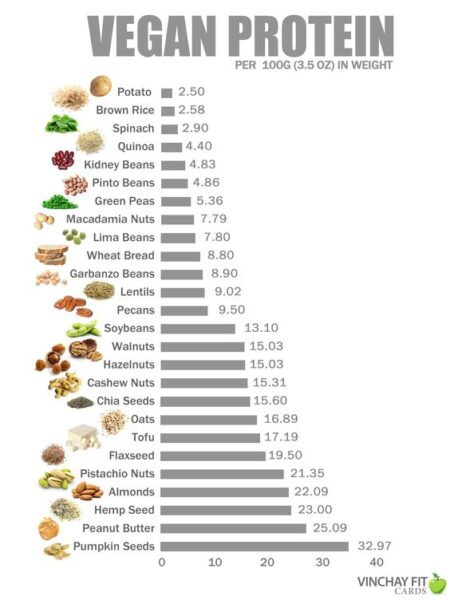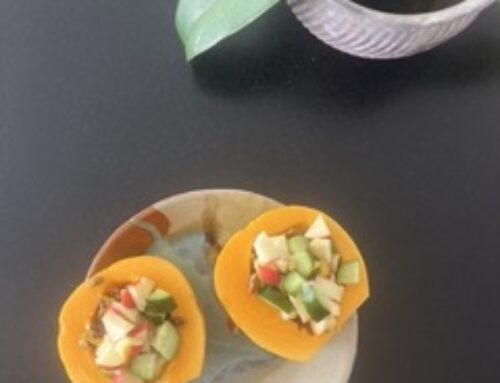I was doing a bit of research on vegan protein sources and figured I might as well keep that information somewhere. What better place than here?
The older we get, the more stress we tend to face and the more energy we require – demands like these have us turning to food for fuel and reprieve. It’s so common for diet advise to quickly churn feelings of whether or not we’re doing the right thing when it comes to energizing our bodies, even from a weight loss stand point. Let these suggestions help guide your meal prep and plans throughout the week. Keep in mind – if you’re heeding the 1 gram of protein per 1 pound of body weight rule (and I hope you’re taking that with a grain of salt if you tend to overly fixate on number crunching and calculating your food intake) then these options should satisfy those needs quickly and deliciously while maintaining plant based intentions.

Nuts and seeds
Nuts and seeds are naturally rich in protein. You can enjoy them on their own, blended into nut butters, mixed into yogurt, oatmeal, or trail mix, or added to smoothies, salads, grain dishes, and homemade veggie burger patties. Here’s the amount of protein found in a 1-ounce (28–30-gram) serving of various nuts and seeds
- Walnuts: 4.5 grams
- Almonds: 6 grams
- Cashews: 4.5 grams
- Chia seeds: 6 grams
- Flax seeds: 6 grams
- Hemp seeds: 9.5 grams
- Sunflower seeds: 5.5 grams
- Pumpkin seeds: 8.5 grams
SUMMARY
A small, 1-ounce (28–30-gram) serving of various nuts and seeds offers roughly 4–9 grams of protein. You can eat them raw or add them to various foods, such as a smoothie, oatmeal, or salad.
Nondairy milks
A growing number of nondairy milks are available today, but not all of them are great sources of protein. If you’re hoping to use nondairy milk as a source of protein, be sure to buy one of the varieties below. These can be used just like dairy milk in coffee, soup, and batter for baked goods, as well as smoothies, cereal, and cream sauces. Here’s the protein found in 1 cup (240 mL) of the nondairy milks highest in protein
- Soy milk: 6 grams
- Pea milk: 8 grams
SUMMARY
Soy and pea milk are among the most naturally protein-rich nondairy milks, packing 6–8 grams per cup (240 mL).
Legumes, which include beans, peas, and lentils, are great sources of protein for people on plant-based diets. Plus, you can eat cooked legumes on their own, as part of a marinated grain salad (or other salads), and in burritos, quesadillas, soups, and nachos. The list below outlines the protein content of 1/2 cup (80–93 grams) of a variety of canned legumes
- Black beans: 8 grams
- Pinto beans: 7 grams
- Chickpeas: 7.5 grams
- Kidney beans: 8 grams
- Lentils: 8 grams
- Peas: 8 grams
SUMMARY
Legumes
Legumes like beans, peas, and lentils are packed with protein. Eat these as a side dish or in burritos, soups, and salads.
Vegan meats go beyond packaged plant-based burgers and hotdogs. Soy foods like tofu and tempeh work well in breakfast scrambles, roasted in the oven, and in stir-fries, burritos, and sandwiches. Seitan, a savory protein made from vital wheat gluten, is great in soups, salads, grain dishes, tacos, and sandwiches. Similar serving sizes of various vegan meats provide the following amounts of protein
- Tofu (3 ounces or 85 grams): 4 grams
- Tempeh (3/4 cup or 100 grams): 13 grams
- Seitan (3 ounces or 100 grams): 19 grams
- Beyond Meat meatballs (5 total, 100 grams): 20 grams
- Impossible Burger (1 patty, 113 grams): 19 grams
SUMMARY
Soy foods, seitan, and various prepackaged vegan meats offer 4–20 grams of protein per serving.
High protein grains
Grains are a lesser-known source of plant protein but offer a great way to supplement your protein intake.You can use cooked grains as the base of a meal, incorporate them into homemade veggie burgers and granola bars, top salads and soups with them, stuff bell peppers with them, and eat them in breakfast bowls and burritos. Here’s the protein content of a 1/2 cup (100–126 grams) of several popular grains when cooked
- Quinoa: 4.5 grams
- Brown rice: 3 grams
- Amaranth: 4.7 grams
- Millet: 3.5 grams
- Oats: 3 grams
- Spelt: 6 grams
- Teff: 4.9 grams
SUMMARY
Whole grains are an excellent choice to supplement your protein intake. Spelt, teff, amaranth, and quinoa are all particularly high in protein.





